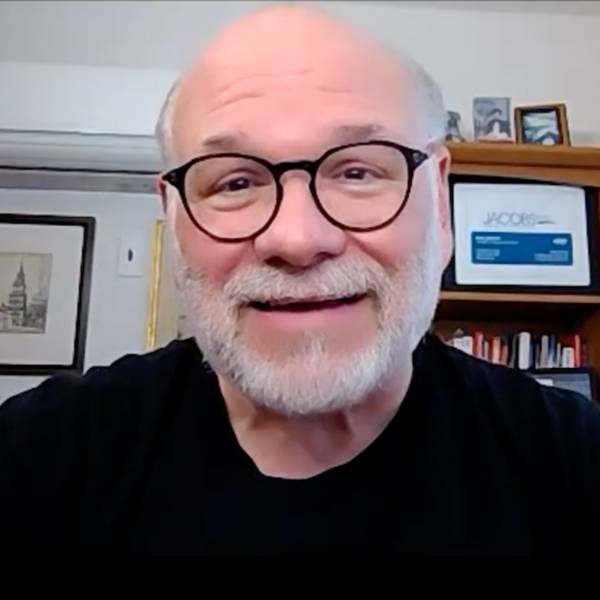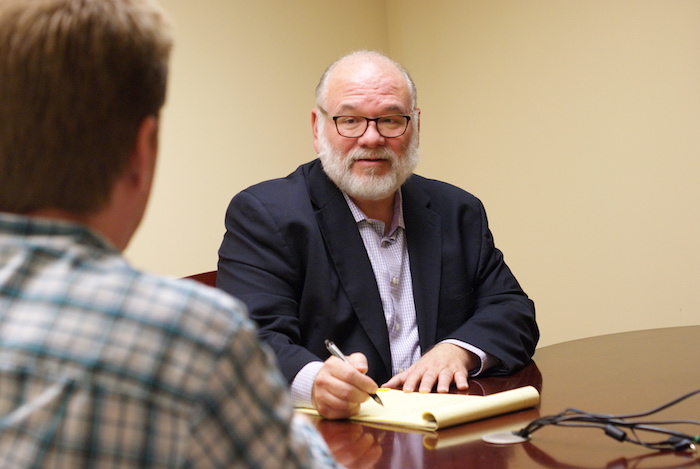Ken Jacobs on His Own Leadership Values
By Ken Jacobs
December 2019
After five-plus years of publishing “Taking the Lead” on a monthly basis, we are moving the column to a quarterly cycle for 2020. For our last issue of 2019, Ken Jacobs himself tackles the questions that he has asked countless other PR leaders.
Who are the best leaders you’ve worked for?
I owe so much to these three amazing leaders, in chronological order of my career: first, Jean Way Schoonover, president of D-A-Y Public Relations, where I started. I had messed up big, and she would have been justified in laying into me, or even terminating my employment. Instead, she gently helped me realize what I had done wrong.
Next was Lenore Cooney, former executive vice president of Ogilvy PR. We were going through our merger with Ogilvy, Adams & Rinehart. It was a difficult time. She demonstrated her leadership talent by giving good counsel to whomever wanted it, regardless of whether we reported to her or not.
The other great leader in my career was Marina Maher, president and CEO of Marina Maher Communications. On 9/11, she sprang into action, working with her assistant to make sure our visiting clients got some of the last available hotel rooms in New York and that our team was well fed.
She also arranged to purchase walking shoes for those who would need to walk home. She invited us to watch the news together in her office, helping us feel like a community at an extremely difficult time. I’ll never forget it.
What have been your biggest leadership faux pas, and how have you overcome those missteps?
If I had to choose one, it would be that I focused more on being liked than being respected. To be honest, I’m not sure I overcame that problem during my agency-management career. I hope I’ve made up for it during my second career as an executive coach.
What tenets do you think best serve leaders?
Talk less and listen more. And when you’re about to share your brilliant thinking, ask one more question. The answer you get may alter your counsel.
Show respect. Since all energy is reciprocal, if you suspect that certain team members don’t respect you, it’s likely they feel that you don’t respect them. It’s incumbent upon you to take the first step.
Another important leadership tenet is to be a lifelong student of leadership. Your title might be president, executive vice president or CCO, but your most important job is to lead. Learn everything you can about leadership. Read books, take courses, follow blogs — and if I may say so, hire a leadership coach!
Finally, realize that leadership takes work. It requires effort to customize your leadership style for each of your direct reports, to observe the effectiveness of your leadership and your communications style, to get feedback on your leadership, and to modify actions that aren’t delivering.
How can we develop leaders?
We have to stop promoting employees into leadership positions solely because they’re great PR practitioners or managers. Most leaders are great managers, but not all managers are naturally great leaders.
Help your managers become powerful leaders. And if they can’t, don’t promote them. Find some other way for them to bring value to your organization.
Don’t assume people can become leaders on their own. Create an internal leadership-training program if possible. Otherwise, encourage them to take training courses, and be willing to pay for it as part of their annual professional-development allocation.
We should also be on the lookout for potential leaders. It’s never too early to lead. I’ve seen early career account executives with obvious natural leadership skills, influence and ability to inspire followers.



